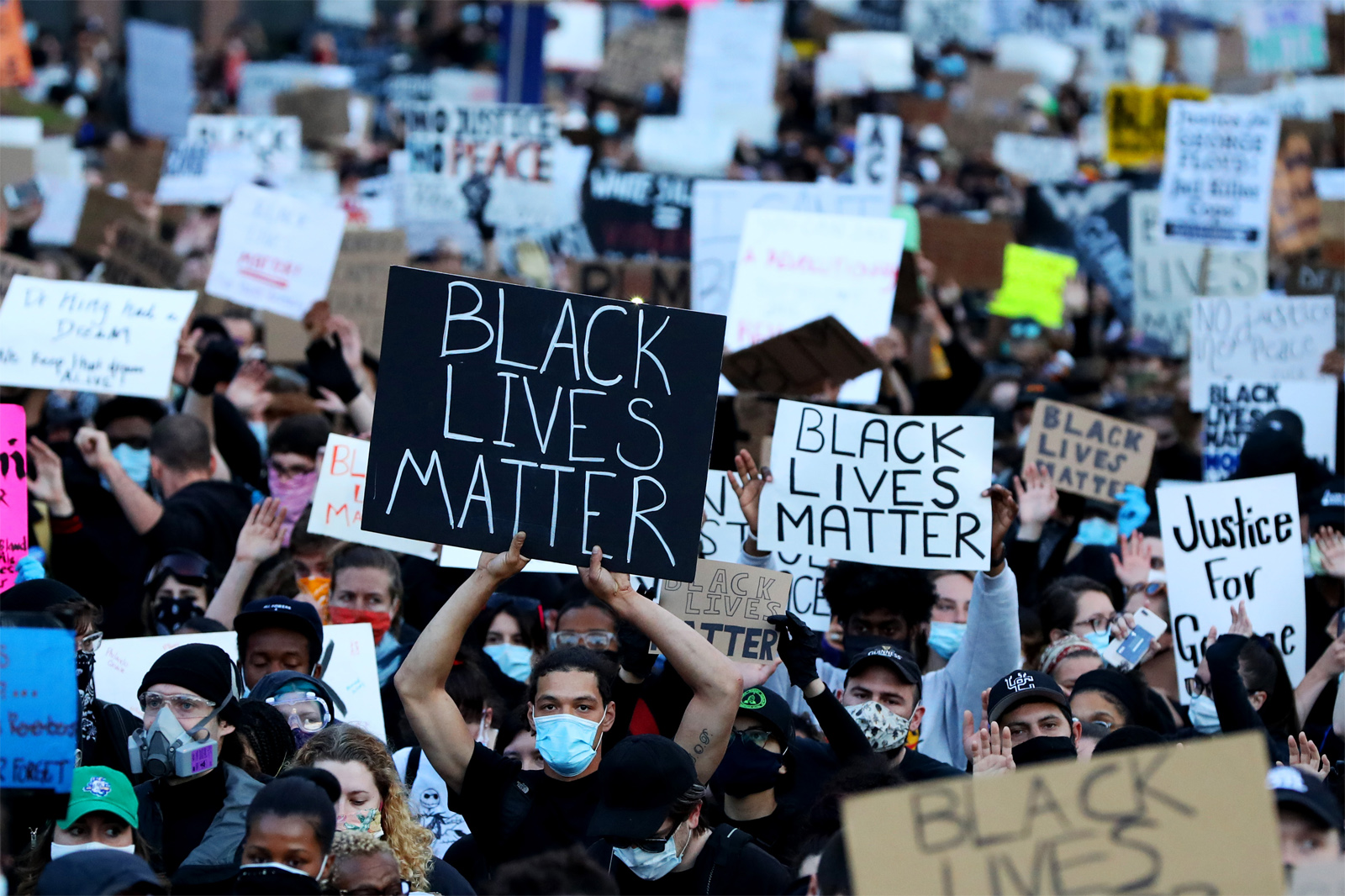ACLU Statement on Supreme Court Decision to Decline to Hear Case on Protestors’ Rights
WASHINGTON – The Supreme Court today declined to hear a case that would have affirmed that the First Amendment protects protest leaders and organizers from being held liable for any actions of a third party that they did not specifically direct, authorize, ratify, or intend. Justice Sonia Sotomayor wrote a statement explaining that, though the court declined to hear the case, its decision expresses no view on the merits of the First Amendment arguments.
The case, Mckesson v Doe, was brought against DeRay Mckesson, a prominent civil rights and social justice activist, by a police officer claiming that Mckesson should be liable for personal injuries he suffered after an unknown individual, not Mr. Mckesson, threw an object at him during a political protest in the aftermath of the 2016 killing of Alton Sterling by police in Baton Rouge, Louisiana. Previously, the Fifth Circuit ruled, over powerful dissenting opinions, in favor of the officer, accepting a theory under which all protest leaders can find themselves on the hook for an unlawful act they did not intend, committed by an unidentified person they neither knew nor controlled, all because they were at the same protest.
Mckesson is represented by David Goldberg, counsel of record on Mckesson’s legal team and attorney with Donahue, Goldberg & Herzog; the American Civil Liberties Union; the American Civil Liberties Union of Louisiana; and Billy Gibbens and Ian Atkinson, trial counsel and attorneys with Schonekas, Evans, McGoey & McEachin, LLC.
“The goal of lawsuits like these is to prevent people from showing up at a protest out of the fear that they might be held responsible if anything happens,” said Mckesson, a prominent civil rights and social justice activist. “But people don't need to be afraid to show up. The Constitution still protects our right to protest.”
In her statement, Sotomayor noted that the lower courts are expected to apply the precedent set in Counterman v. Colorado, a 2023 Supreme Court case, which held that the First Amendment prohibits holding anyone liable for mere negligence when it comes to speech in any circumstance. And, when it comes to incitement–whether in a civil or a criminal case–intent is the governing standard.
“It is disappointing that the Court did not take the opportunity to bring this case to an end,” said David Goldberg, Mckesson’s counsel of record. “But I am confident that the Court eventually will consider and repudiate this dangerous rule of law.”
In seeking Supreme Court review, the ACLU and Goldberg argued that, under the First Amendment, it is impermissible to hold Mckesson liable for damages, absent any evidence that he directed, authorized, ratified or encouraged any act of violence at the protest, based solely on the possibility that violence by someone at the protest was “foreseeable.” Under the Fifth Circuit’s dangerous theory of liability, the ACLU and Goldberg argued that protest leaders will face greater responsibility than others who “create the conditions” for illegal conduct by unrelated third parties. The case will now proceed in the trial court, with the benefit of Sotomayor’s statement and the governing rule of Counterman.
“After today’s news, people should not be afraid that they’ll face a ruinous lawsuit if they exercise their rights to protest. The Court just last year affirmed that negligence can never be the governing standard when it comes to speech, and Justice Sotomayor suggests it simply didn’t need to say so again here,” said Vera Eidelman, staff attorney with the ACLU Speech, Privacy and Technology Project. “That should be the takeaway for the lower courts in this case and in protest cases going forward.”
The ACLU emphasizes that the Court’s decision to deny discretionary review in this case does not amount to a holding that the Fifth Circuit’s rule is correct, even in the Fifth Circuit, and that it will fight to ensure–in this case and others–that the Fifth Circuit’s clearly erroneous decision does not govern anywhere.




